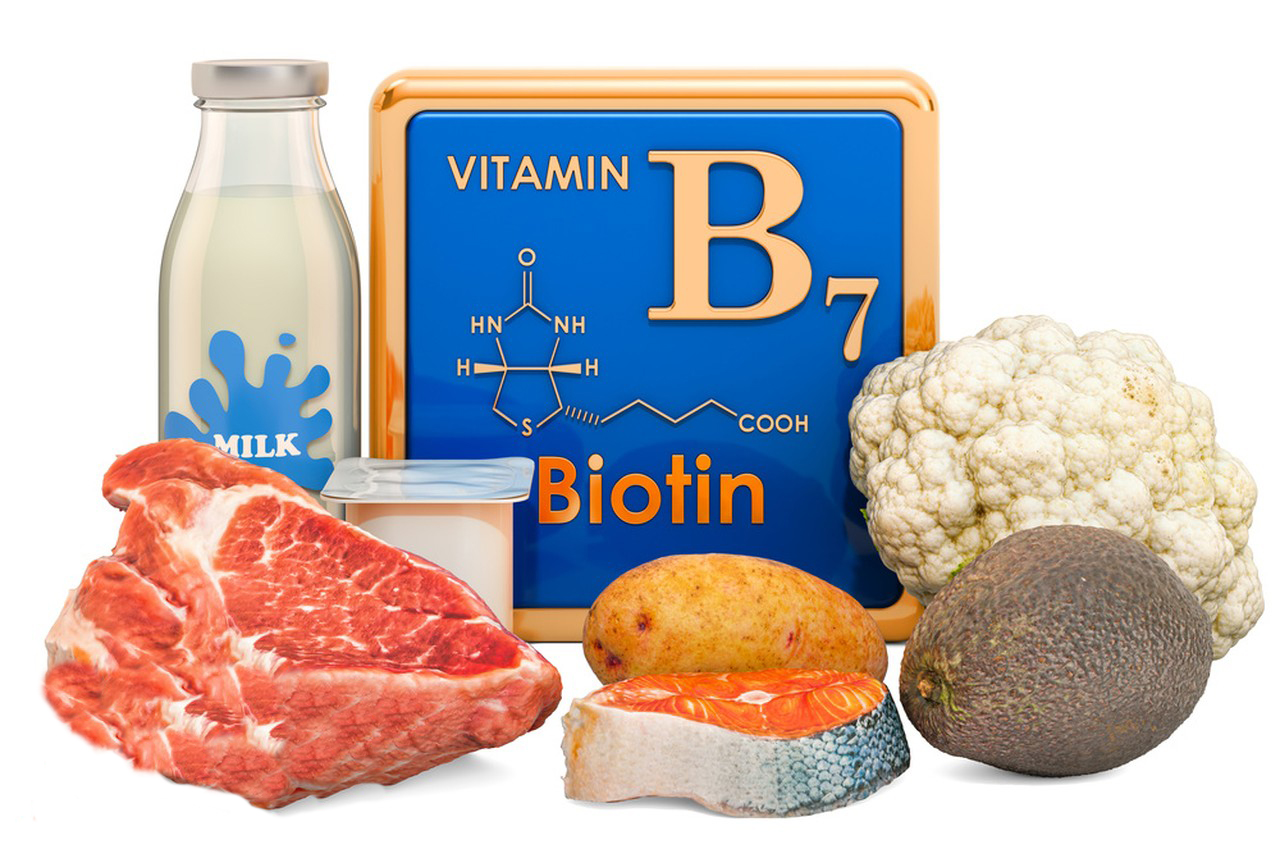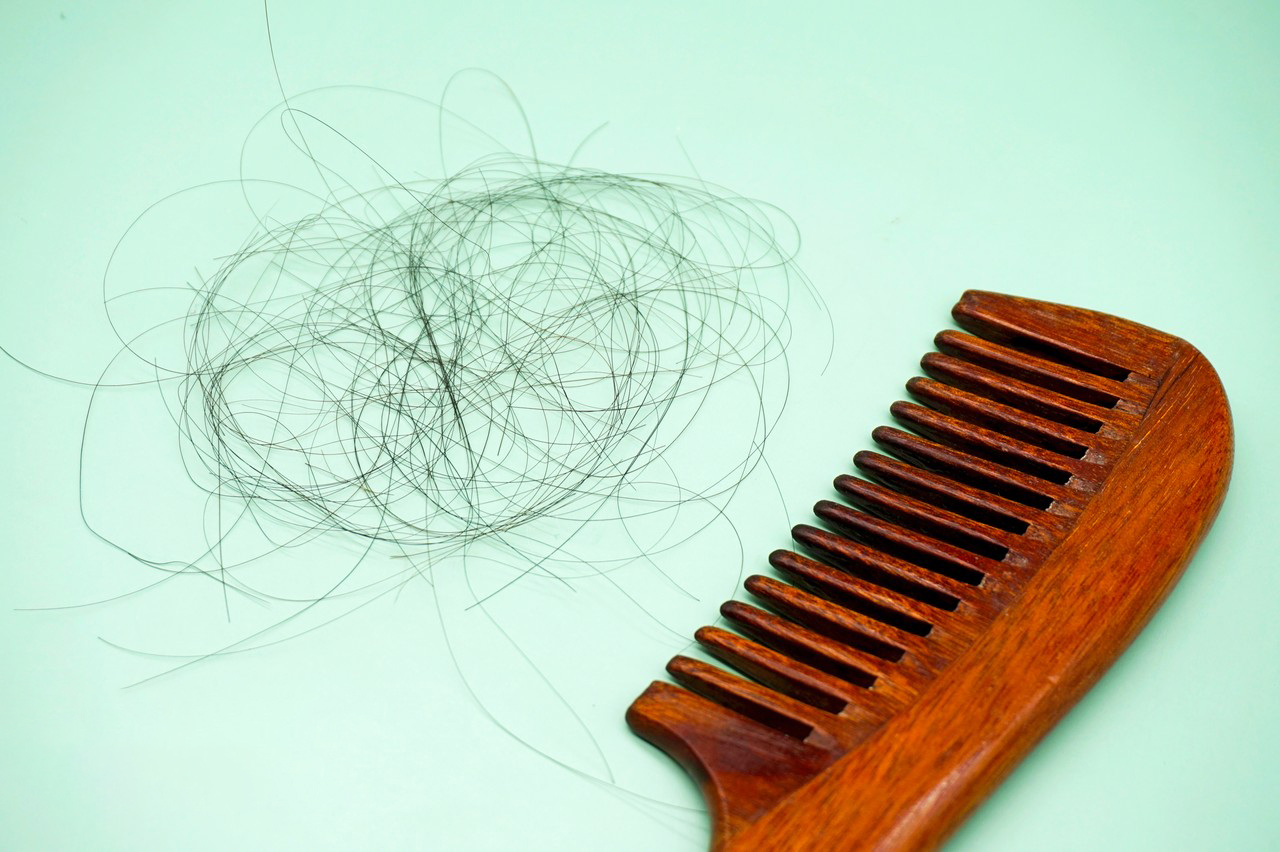Biotin, also known as vitamin B7 or vitamin H, is a water-soluble vitamin that is part of the B-complex group. Biotin is not a compound made of other ingredients; instead, it is a single molecule with a specific chemical structure. However, it can be found in various food sources or as a supplement. Biotin’s chemical structure consists of:
- A ureido ring: A five-membered ring containing nitrogen.
- A tetrahydropyrimidine ring: A six-membered ring with nitrogen.
- A valeric acid side chain: A five-carbon chain attached to the rings.
Biotin is involved in several key metabolic processes in the body, including the metabolism of carbohydrates, fats, and proteins.
Common food sources of biotin include:
- Eggs (especially yolks)
- Nuts (like almonds, walnuts)
- Seeds
- Liver and organ meats
- Fish (salmon, sardines)
- Sweet potatoes
- Avocados
- Whole grains

As a supplement, biotin is commonly taken in pill or capsule form and may also be found in various multivitamins or hair, skin, and nail supplements.
Effect of Biotin on Hair
Biotin, also known as vitamin B7, is often touted as a supplement that can improve hair health. While it plays an essential role in the body’s energy production and supports the health of the skin, hair, and nails, its effect on hair growth is not always clear-cut.
Here’s what we know:
1. Biotin Deficiency and Hair Health
- Deficiency: Biotin deficiency can lead to hair thinning or hair loss. In such cases, taking biotin supplements can help restore hair health. However, biotin deficiency is quite rare in healthy individuals since it’s widely available in foods like eggs, nuts, seeds, and leafy greens.
- Symptoms of deficiency: Hair thinning, brittle nails, and skin issues like rashes.
2. Biotin Supplementation
- Effect on hair growth: There is limited evidence that biotin supplementation significantly improves hair growth in people who are not deficient in biotin. Most studies show that while biotin can help with hair strength and quality, it doesn’t necessarily stimulate hair growth for people with normal levels of biotin.
- Hair quality: Some studies suggest that biotin can improve the thickness and shine of hair, especially for people with weak or damaged hair, even if they don’t have a biotin deficiency.
3. Other Factors
- Genetics and Hormones: Hair growth is largely influenced by genetic factors and hormonal imbalances (like thyroid or androgenic factors). Biotin alone may not be enough to address these.
- Overall Health: Hair health is also tied to diet, lifestyle, and overall health. Nutrient deficiencies (other than biotin), stress, and insufficient sleep can all affect hair quality and growth.

4. Safety
- Overdose: Biotin is water-soluble, meaning excess amounts are typically excreted in urine, so toxicity is rare. However, high doses of biotin can interfere with laboratory tests (e.g., thyroid function tests), leading to inaccurate results.
In summary, biotin can be beneficial for people with a biotin deficiency or those looking to improve hair strength and quality, but it may not drastically boost hair growth in people with normal biotin levels. If you’re concerned about hair loss, it’s important to consider other potential factors, such as hormonal imbalances, stress, and overall nutrition.
